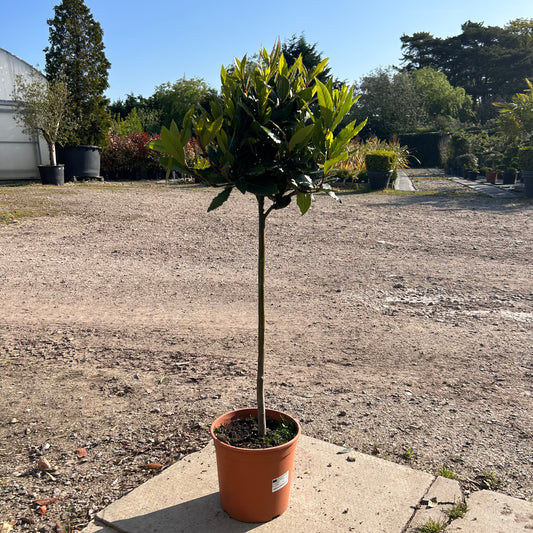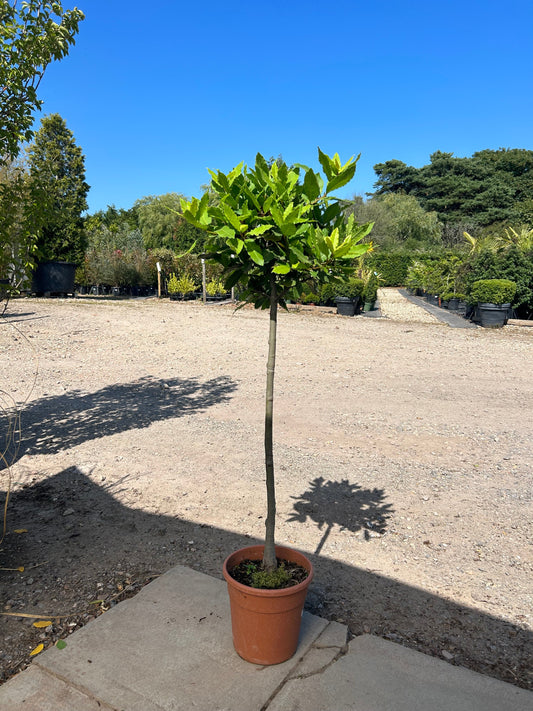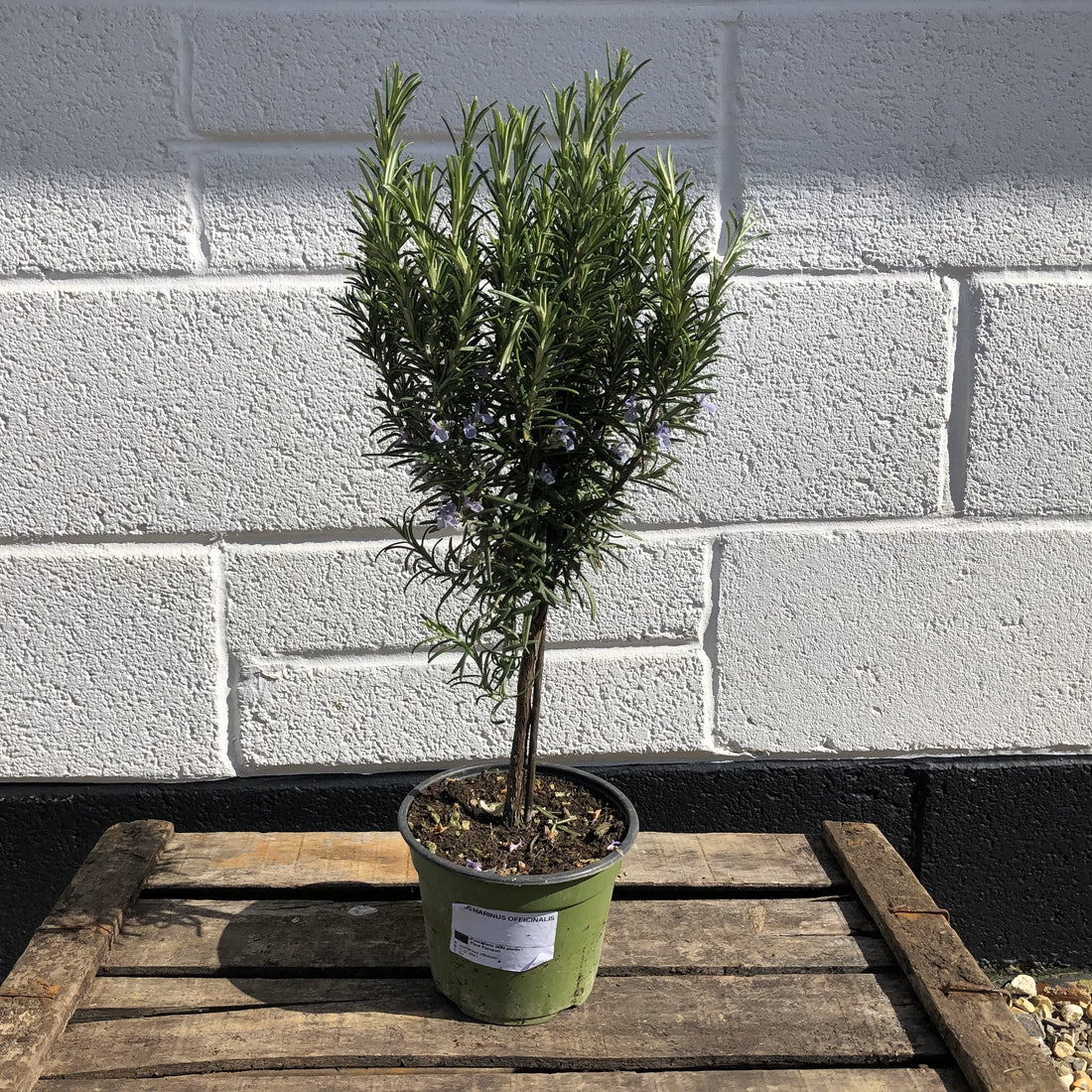Introduction:
Rosemary (Salvia rosmarinus) is a popular, fragrant herb with many culinary, medicinal, and ornamental uses. Known for its aromatic, needle-like leaves, rosemary is an evergreen plant that thrives in the UK’s temperate climate. In this article, we answer the most commonly asked questions about growing, caring for, and using rosemary in your garden, with links to essential supplies from Web Garden Centre.
1. What is Rosemary?
Rosemary is an evergreen herb native to the Mediterranean, known for its strong fragrance, needle-like leaves, and small, pale blue flowers. It’s a versatile plant, commonly grown for culinary purposes and used in various dishes like roasts, soups, and breads. In UK gardens, rosemary adds texture, fragrance, and beauty, making it an excellent choice for herb gardens, containers, or ornamental borders.
Explore rosemary plants at Web Garden Centre.
2. How Fast Does Rosemary Grow?
Rosemary is a slow-to-moderate grower. Under ideal conditions, it can reach a height of 3-4 feet over several years. Regular pruning helps maintain its size and encourages bushier growth. Once established, rosemary can live for many years in UK gardens.
3. How Tall Does Rosemary Get?
In the UK, rosemary typically grows between 1-1.5 metres tall, but with regular pruning, it can be kept more compact. If left to grow freely, it can develop into a small shrub, adding structure and greenery to your garden year-round.
4. Can Rosemary Be Grown in Pots?
Yes, rosemary grows exceptionally well in pots. It’s a great option for gardeners with limited space, as it can thrive on patios, balconies, or in window boxes. Make sure to use a well-draining potting mix, as rosemary doesn’t like waterlogged roots.
Find suitable pots for your rosemary at Web Garden Centre.
5. Does Rosemary Need Full Sun or Shade?
Rosemary thrives in full sun, requiring at least 6-8 hours of direct sunlight daily. In the UK, plant it in the sunniest spot in your garden to ensure it grows healthily and produces its signature aromatic leaves.
6. How Do I Care for Rosemary in the UK?
Rosemary is relatively low-maintenance, making it ideal for UK gardeners. Here’s how to care for it:
- Watering: Rosemary prefers dry conditions, so water sparingly. Allow the soil to dry out between waterings.
- Soil: It grows best in well-drained, sandy or loamy soil.
- Pruning: Prune lightly after flowering to maintain its shape and encourage new growth.
- Feeding: A light feed in spring with a general-purpose fertiliser can help boost growth.
For more gardening supplies, visit Web Garden Centre.
7. When Should I Prune Rosemary?
Prune rosemary in late spring or early summer, after it has finished flowering. Light pruning helps maintain its shape and encourages bushier growth. Avoid cutting into old, woody stems as this can damage the plant.
8. What Soil is Best for Rosemary?
Rosemary thrives in well-drained, slightly alkaline soil. In the UK, if your soil is heavy or clay-based, consider improving drainage with sand or planting in raised beds or pots.
Explore soil and compost options at Web Garden Centre.
9. Is Rosemary Suitable for Small Gardens?
Yes, rosemary is perfect for small gardens due to its compact size and versatility. It can be grown in containers or in garden borders, providing both ornamental value and a ready supply of fresh herbs for cooking.
10. What is the Difference Between Upright and Trailing Rosemary?
Upright rosemary varieties grow vertically, forming a bush or shrub-like structure. Trailing or prostrate rosemary varieties spread out horizontally and are ideal for ground cover or cascading over the edges of containers. Both varieties offer the same culinary and aromatic benefits.
11. How Do I Protect Rosemary from Frost in the UK?
In most parts of the UK, rosemary is hardy and can withstand light frost. However, in colder regions, or during particularly harsh winters, it’s advisable to protect rosemary by moving pots to a sheltered spot or covering garden plants with horticultural fleece.
For winter protection products, visit Web Garden Centre.
12. How Often Should I Water Rosemary?
Rosemary is drought-tolerant once established and prefers its soil to be on the dry side. Water only when the top inch of soil feels dry to the touch. Overwatering can lead to root rot, so ensure good drainage.
13. Can Rosemary Survive UK Winters?
Yes, rosemary is generally hardy in UK winters, especially in the milder southern regions. However, in colder northern areas, provide protection by moving potted plants indoors or to a sheltered spot during freezing conditions.
14. What Pests Affect Rosemary?
Rosemary is relatively pest-resistant, but it can occasionally be affected by:
- Aphids: These small insects can feed on the sap, causing distorted growth.
- Spider Mites: These tiny pests may cause yellowing or browning of leaves.
Regular inspection and natural insecticidal treatments can keep these pests at bay. For pest control products, visit Web Garden Centre.
15. How Can I Prevent Rosemary from Becoming Woody?
To prevent rosemary from becoming woody, prune it regularly, ideally after flowering in late spring. This encourages new, tender growth and keeps the plant bushy and healthy.
16. What is the Best Time of Year to Plant Rosemary?
The best time to plant rosemary in the UK is in spring or early autumn. Planting during these cooler seasons gives the plant time to establish itself before the heat of summer or the cold of winter.
17. What Are the Best Companion Plants for Rosemary?
Rosemary grows well alongside other Mediterranean herbs like thyme, sage, and lavender. It also pairs beautifully with flowers like marigolds and nasturtiums, which help deter pests.
18. How Do I Propagate Rosemary?
Rosemary can be easily propagated from cuttings. In summer, take a 10cm (4-inch) cutting from a healthy branch, remove the lower leaves, and place it in well-drained compost. Keep it moist until roots develop.
Find propagation supplies at Web Garden Centre.
19. Does Rosemary Need Fertilising?
Rosemary doesn’t need heavy feeding. A light application of a general-purpose fertiliser in spring will support its growth. Be cautious of over-fertilising, as this can lead to weak, leggy growth.
20. How Do I Harvest Rosemary for Cooking?
Harvest rosemary by cutting sprigs from the plant as needed. You can use fresh rosemary immediately or dry it for later use. Regular harvesting encourages bushier growth and prevents the plant from becoming too woody.
Conclusion
Rosemary is an essential herb for UK gardeners, offering both culinary benefits and year-round beauty. Whether grown in pots, borders, or herb gardens, its fragrant leaves and versatile growth make it a must-have for gardeners of all skill levels. With minimal care, rosemary will thrive in UK gardens for years, providing a steady supply of herbs and adding structure to your landscape.
For more information on rosemary or to purchase a plant, visit Web Garden Centre.









